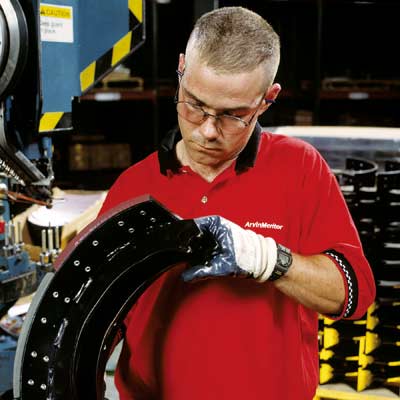INTRODUCTION : Although the difficulties in the auto parts supply industry have continued for a long time, for many auto parts suppliers, if the market conditions improve, their operations will likely improve. New opportunities waiting for them to fight for
Although it has entered 2008, American automakers still can't get rid of the entanglement of the 2007 winter. They all admit that 2008 will be a challenging year, and correspondingly hundreds of auto parts. Suppliers are more pessimistic: “In 2008, we will probably encounter the most difficult years.†Developing and developing “green parts†overseas may make component suppliers out of the woods.

Prospective dilute polarization
Industry analysts predict that sales in the US auto market will be less than 16 million in 2008 due to the mortgage crisis, high oil prices and weak consumer confidence affecting shoppers. This means that when many suppliers have experienced serious losses or falling profits for several years, the market has reduced demand for their components.
As US automakers claim that even if the US economy is in recession, they are not planning to use discounts to stimulate a weak market, and the prospects for US auto suppliers will be even more bleak.
During the 2001 recession, a large number of sales and interest-free financing agreements in the US auto market maintained assembly line operations and supplier operations in auto plants.
But discount promotions have reduced automakers' profits and resale value of vehicles, causing General Motors, Ford Motor Company and Chrysler Motors to try to abandon this promotion strategy.
IRN's automotive analyst Eric Merkel said: "The market environment will change a lot because automakers say they will not continue to sell discounts."
Correspondingly, automakers are demanding price cuts to cope with sales declines, and component suppliers may feel more pressure. Given the recovery of the market and the rebound in component prices, such price cuts will be the biggest price cuts that component suppliers have been forced to agree in recent years. But the price rebound has not happened so far.
Recently, investors have depressed the stock prices of suppliers due to fears of new market volatility in the New Year. The stock price of ArvinMeritor, the major North American component supplier, fell from $23.65 in the summer of 2007 to less than $10. This is the first time in seven years. Stock prices of component suppliers TRW Automotive and Superior Industries International hit a 52-week low. American Axle & Manufacturing's stock reached its lowest point in 11 months. At the end of 2007, stocks of Lear, Tenneco and Magna International also fell significantly. Jonathan Steinmetz, an automotive analyst at investment bank Morgan Stanley in New York, lowered his 2008 estimate of the profit of each of the car suppliers and concluded that the operations of these suppliers are likely to deteriorate further: "These stocks The decline reflects the recent production arrangements of GM, Ford and Chrysler. In fact, component suppliers should strengthen their business outside these three companies, strengthen their balance sheets, diversify their operations, improve product quality and shareholders. Dividend income." In the harsh operating environment, some component suppliers have gone bankrupt. Collins & Aikman, which manufactures automotive cab modules, floors, sound systems and dashboards, closed in 2007. The company had 14,000 employees in 2005. At that time, it filed for bankruptcy protection due to falling sales and serious losses. In March last year, the company's former CEO David Stockman and budget director Ronald Reagan were charged for accounting fraud. Many other suppliers—including Delphi, Dana, and Dura Automotive Systems—have reduced profits, increased retirees, rising health care costs, and competition from foreign companies. They all operate under bankruptcy protection. A study conducted by consulting firm BBK found that one-third of large auto supply companies in North America are in financial distress, and another 22 percent of auto supply companies may face serious difficulties in mid-2008. Of course, not all component suppliers face a gloomy outlook. Despite the deterioration of the overall market environment, BorgWarner and Johnson Controls still have a lot of profit margins because they are not primarily dependent on the North American market, and car analyst Eric Merkel also said "In 2008, there were actually some parts and component suppliers that would benefit and thrive because some of their competitive factors would disappear."
“The difficulties in the auto parts supply industry have continued for a long time, and the gap between well-operated suppliers and component manufacturers with difficult operations will become larger and larger. The parts and components companies with difficult operations will only need to apply for some kind of protection. The situation is long-term losses. Parts and components companies with difficult operations will be merged or bankrupt, and well-managed suppliers will grow stronger,†said Patzel Long’s auto industry lawyer Patrick Dreigig. “If these suppliers survive and operate steadily and then grow, they are likely to achieve great success,†adds Dreigig.
William Kohler, a former general counsel for Johnson Controls, believes that auto parts suppliers have taken more steps to protect themselves from bankruptcy. For example, some suppliers are now asking to reduce their defaults in bankruptcy protection, while others are considering selling their accounts receivable accounts to third parties willing to take risks.
Next page
Range Hood,Cooker Hood,Exhaust Hood
Cylinder,TABLE TOP GAS STOVE Co., Ltd. , http://www.nscylinder.com